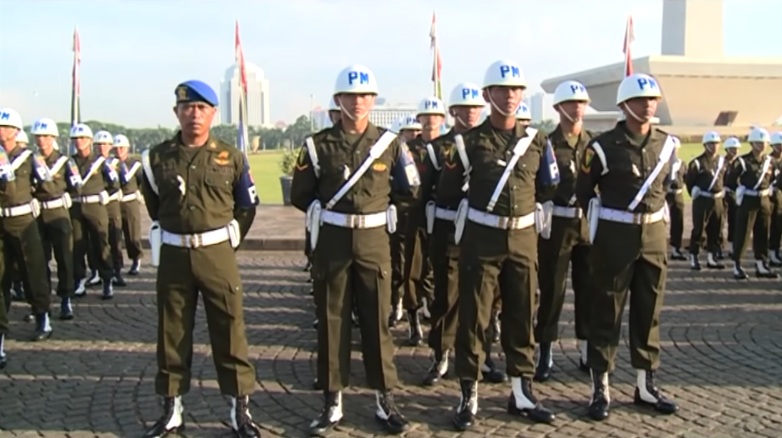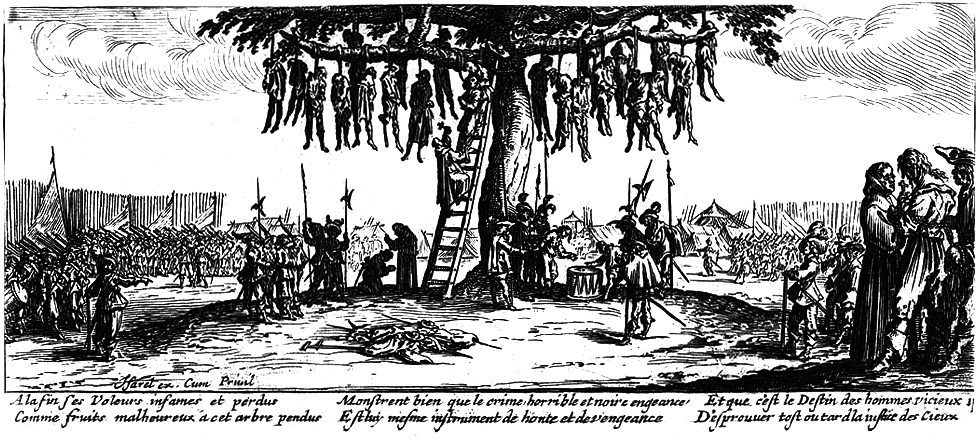|
Feldjägerkorps
The ''Feldjägerkorps'' () (field hunter corps) was a military provost organization in the German ''Wehrmacht'' during World War II. It was established on 27 November 1943 and consisted of three ''Feldjäger'' commands that reported directly to the ''Oberkommando der Wehrmacht'', headed by chief of staff ''Generalfeldmarschall'' Wilhelm Keitel. It was recruited from veteran, battle-hardened troops and was senior to all other military police organizations. It operated approximately 12 miles behind the front lines, and its main function was to maintain order and discipline among the troops, hunting down deserters and stragglers and meting out punishment, which could include drumhead courts-martial and execution. Background and precursors The SA-''Feldjägerkorps'' There were no military units with police-like duties in the ''Reichswehr'', the armed forces of the Weimar Republic. Following the Nazi seizure of power in 1933, a type of police force was established for the Nazi ... [...More Info...] [...Related Items...] OR: [Wikipedia] [Google] [Baidu] |
Johann Baptist Fuchs
Johann Baptist Fuchs (8 June 1877 – 18 November 1938) was a German professional military officer who served in the Royal Bavarian Army during the First World War, and also was a member of the post-war ''Freikorps''. He became a senior state police official in Bavaria and participated in Adolf Hitler's Beer Hall Putsch. He joined the Nazi Party and its paramilitary unit, the Sturmabteilung (SA), holding several high-level staff positions and rising to the rank of SA-''Obergruppenführer''. Early life and military service Fuchs was born in Regensburg, the son of a railway conductor. He attended ''Volksschule'' and a humanistic '' Gymnasium'', graduating with his ''Abitur''. In 1897, he entered the Royal Bavarian Army as a ''Fahnenjunker'' (military cadet) with the 17th Field Artillery Regiment, headquartered in Germersheim. He attended the war school in Munich and, in March 1899, was commissioned as a ''Leutnant''. From 1906, he served as a battalion adjutant, and he was promot ... [...More Info...] [...Related Items...] OR: [Wikipedia] [Google] [Baidu] |
Military Provost
Provosts (usually pronounced "provo" in this context) are military police (MP) whose duties are policing solely within the armed forces of a country, as opposed to gendarmerie duties in the civilian population. However, many countries use their gendarmerie for provost duties. As with all official terms, some countries have specific official terminology which differs from the exact linguistic meaning. The head of the military police is commonly referred to as the provost marshal, an ancient title originally given to an officer whose duty was to ensure that an army did no harm to the citizenry. Military police are concerned with law enforcement (including criminal investigation) on military property and concerning military personnel, installation security, close personal protection of senior military officers, management of prisoners of war, management of military prisons, traffic control, route signing and resupply route management. Not all military police organizations are conce ... [...More Info...] [...Related Items...] OR: [Wikipedia] [Google] [Baidu] |
Drumhead Courts-martial
A drumhead court-martial is a court-martial held in the field to render summary offence, summary justice for offenses committed in action. The term is said to originate from drums used as improvised tables and drumheads as writing surfaces at fast-track military trials and executions. Origins The earliest recorded usage is in an English memoir of the Peninsular War (1807). The term sometimes has connotations of summary offence, summary justice, with an implied lack of judicial impartiality, as noted in the transcripts of the Nuremberg trials, trial at Nuremberg of Josef Bühler. According to Arthur Bryant, Sir Arthur Wynne Morgan Bryant, such courts-martial have ordered flagellation, lashings or hangings to punish soldiers (and their officer (armed forces), officers) who were cowardly, disobedient, or, conversely, acted rashly; and especially as a discouragement to drunkenness. It is also used as a reference to a kangaroo court in its derogatory form. World War II Naz ... [...More Info...] [...Related Items...] OR: [Wikipedia] [Google] [Baidu] |
Sturmabteilung
The (; SA; or 'Storm Troopers') was the original paramilitary organisation under Adolf Hitler and the Nazi Party of Germany. It played a significant role in Adolf Hitler's rise to power, Hitler's rise to power in the 1920s and early 1930s. Its primary purposes were providing protection for Nazi rallies and assemblies, disrupting the meetings of opposing parties, fighting against the paramilitary units of the opposing parties, especially the ''Roter Frontkämpferbund'' of the Communist Party of Germany (KPD) and the ''Reichsbanner Schwarz-Rot-Gold'' of the Social Democratic Party of Germany (SPD), and intimidating Romani people, Romani, trade unionists, and especially Jews. The SA were colloquially called Brownshirts () because of the colour of their Uniforms and insignia of the Sturmabteilung, uniform's shirts, similar to Benito Mussolini's Blackshirts. The official uniform of the SA was a brown shirt with a brown tie. The color came about because a large shipment of Paul von ... [...More Info...] [...Related Items...] OR: [Wikipedia] [Google] [Baidu] |
Bundeswehr
The (, ''Federal Defence'') are the armed forces of the Germany, Federal Republic of Germany. The is divided into a military part (armed forces or ''Streitkräfte'') and a civil part, the military part consists of the four armed forces: German Army, German Navy, German Air Force and Cyber and Information Domain Service (Germany), Cyber and Information Domain Service, which are supported by the Bundeswehr Support Area. , the had a strength of 180,215 active-duty military personnel and 80,761 civilians, placing it among the 30 largest military forces in the world, and making it the second largest in the European Union behind French Armed Forces, France. In addition, the has approximately 34,600 reserve personnel (2024). With German military expenditures at $88.5 billion (2024), the is the fourth-highest-funded military in the world, though military expenditures have until recently remained low at an average at 1.5% of national GDP, well below the non-binding NATO targ ... [...More Info...] [...Related Items...] OR: [Wikipedia] [Google] [Baidu] |
Weimar Republic
The Weimar Republic, officially known as the German Reich, was the German Reich, German state from 1918 to 1933, during which it was a constitutional republic for the first time in history; hence it is also referred to, and unofficially proclaimed itself, as the German Republic. The period's informal name is derived from the city of Weimar, which hosted the constituent assembly that established its government. In English, the republic was usually simply called "Germany", with "Weimar Republic" (a term introduced by Adolf Hitler in 1929) not commonly used until the 1930s. The Weimar Republic had a semi-presidential system. Toward the end of the First World War (1914–1918), Germany was exhausted and suing for peace, sued for peace in desperate circumstances. Awareness of imminent defeat sparked a German Revolution of 1918–1919, revolution, Abdication of Wilhelm II, the abdication of Kaiser Wilhelm II, the proclamation of the Weimar Republic on 9 November 1918, and formal cessa ... [...More Info...] [...Related Items...] OR: [Wikipedia] [Google] [Baidu] |
Nazi Seizure Of Power
The rise to power of Adolf Hitler, dictator of Nazi Germany from 1933 to 1945, began in the newly established Weimar Republic in September 1919, when Hitler joined the '' Deutsche Arbeiterpartei'' (DAP; German Workers' Party). He quickly rose to a place of prominence and became one of its most popular speakers. In an attempt to more broadly appeal to larger segments of the population and win over German workers, the party name was changed to the ''Nationalsozialistische Deutsche Arbeiterpartei'' (NSDAP; National Socialist German Workers' Party), commonly known as the Nazi Party, and a new platform was adopted. Hitler was made the party leader in 1921 after he threatened to otherwise leave. By 1922, his control over the party was unchallenged. The Nazis were a right-wing party, but in the early years they also had anti-capitalist and anti-bourgeois elements. Hitler later initiated a purge of these elements and reaffirmed the Nazi Party's pro-business stance. This included killing ... [...More Info...] [...Related Items...] OR: [Wikipedia] [Google] [Baidu] |
Nazi Party
The Nazi Party, officially the National Socialist German Workers' Party ( or NSDAP), was a far-right politics, far-right political party in Germany active between 1920 and 1945 that created and supported the ideology of Nazism. Its precursor, the German Workers' Party (; DAP), existed from 1919 to 1920. The Nazi Party emerged from the Extremism, extremist German nationalism, German nationalist ("Völkisch nationalism, ''Völkisch'' nationalist"), racism, racist, and populism, populist paramilitary culture, which fought against communism, communist uprisings in post–World War I Germany. The party was created to draw workers away from communism and into nationalism. Initially, Nazi political strategy focused on anti-big business, anti-bourgeoisie, and anti-capitalism, disingenuously using socialist rhetoric to gain the support of the lower middle class; it was later downplayed to gain the support of business leaders. By the 1930s, the party's main focus shifted to Antisemit ... [...More Info...] [...Related Items...] OR: [Wikipedia] [Google] [Baidu] |
Paramilitary
A paramilitary is a military that is not a part of a country's official or legitimate armed forces. The Oxford English Dictionary traces the use of the term "paramilitary" as far back as 1934. Overview Though a paramilitary is, by definition, not a military, it is usually equivalent to a light infantry or special forces in terms of strength, firepower, and organizational structure. Paramilitaries use combat-capable kit/equipment (such as Internal security vehicle, internal security/SWAT vehicles), or even actual military equipment (such as Long gun, long guns and Armoured personnel carrier, armored personnel carriers; usually military surplus resources), skills (such as battlefield medicine and bomb disposal), and tactics (such as urban warfare and close-quarters combat) that are compatible with their purpose, often combining them with skills from other relevant fields such as law enforcement, coast guard, or search and rescue. A paramilitary may fall under the command of a ... [...More Info...] [...Related Items...] OR: [Wikipedia] [Google] [Baidu] |
Stabschef
(, ) was an office and paramilitary rank in the (SA), the paramilitary stormtroopers associated with the Nazi Party. It was a rank and position held by the operating chief of the SA. The rank was equivalent to the rank of in the German Army and to General in the U.S. Army. Definition The position of , not yet a rank, was established in 1929 to assist the (Supreme SA Leader) with the administration of the fast-growing organisation. Otto Wagener held the office under Franz Pfeffer von Salomon from 1928 to 1930, and effectively headed the SA from Hitler's assumption of the title in August until Ernst Röhm replaced him in January 1931. The actual SA rank of was created by Röhm for himself in 1933 after Hitler became chancellor. Although Hitler became the supreme commander of the SA in 1930, the day-to-day running of the organisation was left to the chief of staff. Thus, the men who held the rank of after 1930 were the actual leaders of the SA. Office holders The office ... [...More Info...] [...Related Items...] OR: [Wikipedia] [Google] [Baidu] |
Free State Of Prussia
The Free State of Prussia (, ) was one of the States of the Weimar Republic, constituent states of Weimar Republic, Germany from 1918 to 1947. The successor to the Kingdom of Prussia after the defeat of the German Empire in World War I, it continued to be the dominant state in Germany during the Weimar Republic, as it had been during the empire, even though most of Territorial evolution of Germany#Territorial changes after World War I, Germany's post-war territorial losses in Europe had come from its lands. It was home to the federal capital Berlin and had 62% of Germany's territory and 61% of its population. Prussia changed from the authoritarian state it had been in the past and became a parliamentary democracy under its Constitution of Prussia (1920), 1920 constitution. During the Weimar period it was governed almost entirely by pro-democratic parties and proved more politically stable than the Republic itself. With only brief interruptions, the Social Democratic Party of Germ ... [...More Info...] [...Related Items...] OR: [Wikipedia] [Google] [Baidu] |





